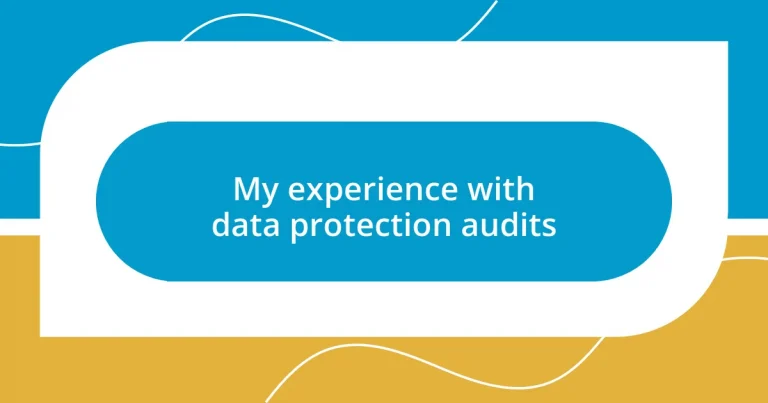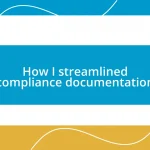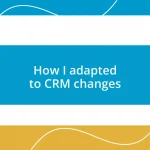Key takeaways:
- Data protection audits enhance organizational culture by promoting shared responsibility and encouraging open dialogue about privacy and ethics.
- Regular audits identify vulnerabilities, boost compliance, build customer trust, and foster a culture of security awareness among all employees.
- Thorough preparation, inclusive participation from all departments, and meticulous documentation are crucial best practices for successful audits.
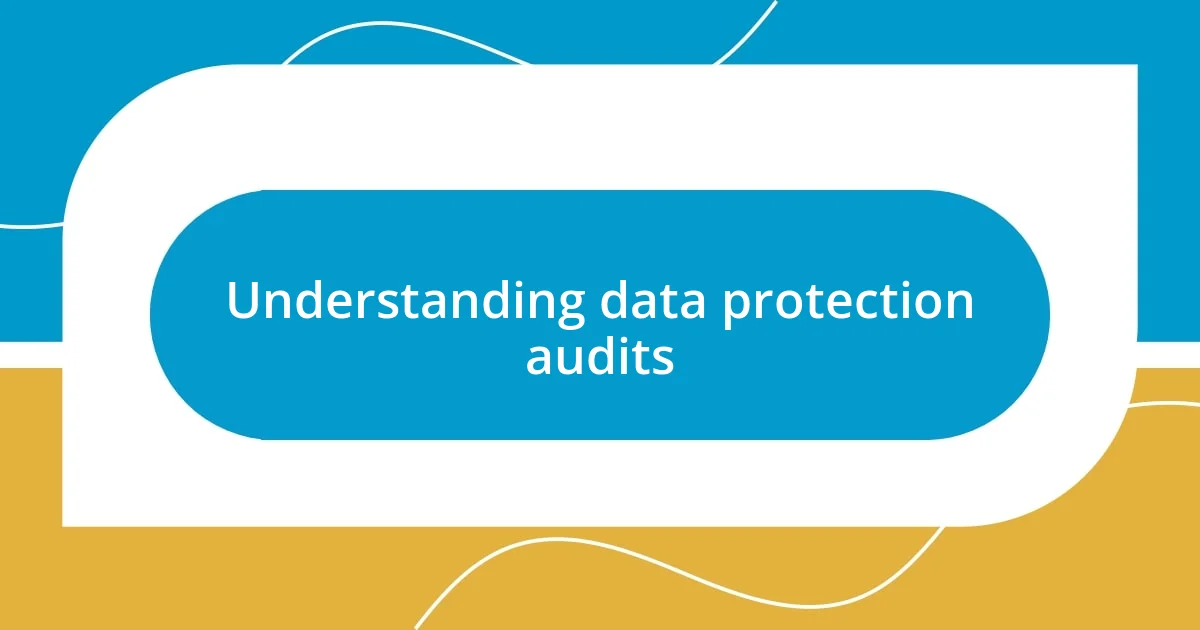
Understanding data protection audits
Data protection audits are essentially thorough examinations of how an organization handles sensitive data. I remember the first time I experienced an audit; the feeling of unease was palpable. Would our practices hold up under scrutiny? This uncertainty pushed us to ensure that every policy and protocol was crystal clear and adhered to regulations.
What struck me during one of these audits was the holistic nature of the process. It’s not just about security measures; it’s about the culture surrounding data protection. I was genuinely surprised by how much collective responsibility played a role in keeping our data secure. Have you ever considered how every team member, from the IT department to customer service, contributes to this shared goal?
By delving into the audit, we not only identified weaknesses but also sparked valuable conversations about privacy and ethics within our organization. It was enlightening to witness colleagues, often siloed in their roles, come together, sharing ideas and best practices. Isn’t it fascinating how an examination—not just of data, but of mindset and approach—can lead to stronger team unity and overall compliance?
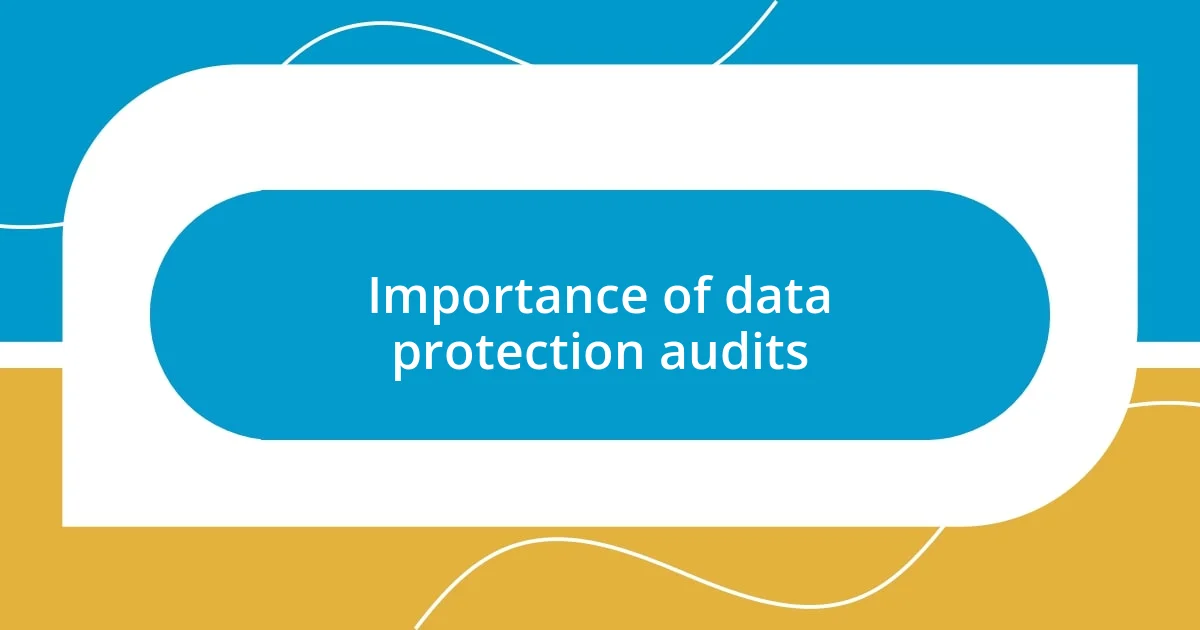
Importance of data protection audits
Data protection audits play a critical role in ensuring that organizations not only meet compliance standards but also foster a culture of security awareness. I vividly recall a moment during one audit when a colleague bravely admitted to a mistake in handling user data. Instead of defensiveness, the atmosphere shifted to one of openness and learning. That’s the beauty of these audits: they create a space for dialogue and growth.
Here’s why data protection audits matter:
- Identify vulnerabilities: They help spot weaknesses in data protection strategies before they can be exploited.
- Enhance compliance: Regular audits align procedures with legal requirements, reducing the risk of fines or penalties.
- Build trust: Demonstrating a commitment to data protection can enhance customer trust and loyalty.
- Foster a culture of security: Audits encourage everyone in the organization to take ownership of data protection, making it a shared responsibility.
- Encourage continuous improvement: They provide insights for ongoing enhancements, ensuring practices evolve with emerging threats.
It’s remarkable how such an evaluation can transform not just processes but mindsets, as it did in my experience. After our audits, I noticed a tangible shift in how teams communicated about data privacy; it became part of our everyday conversations rather than just a box to check. This proactive approach not only mitigated risks but also built a stronger sense of community as we united behind a common goal.
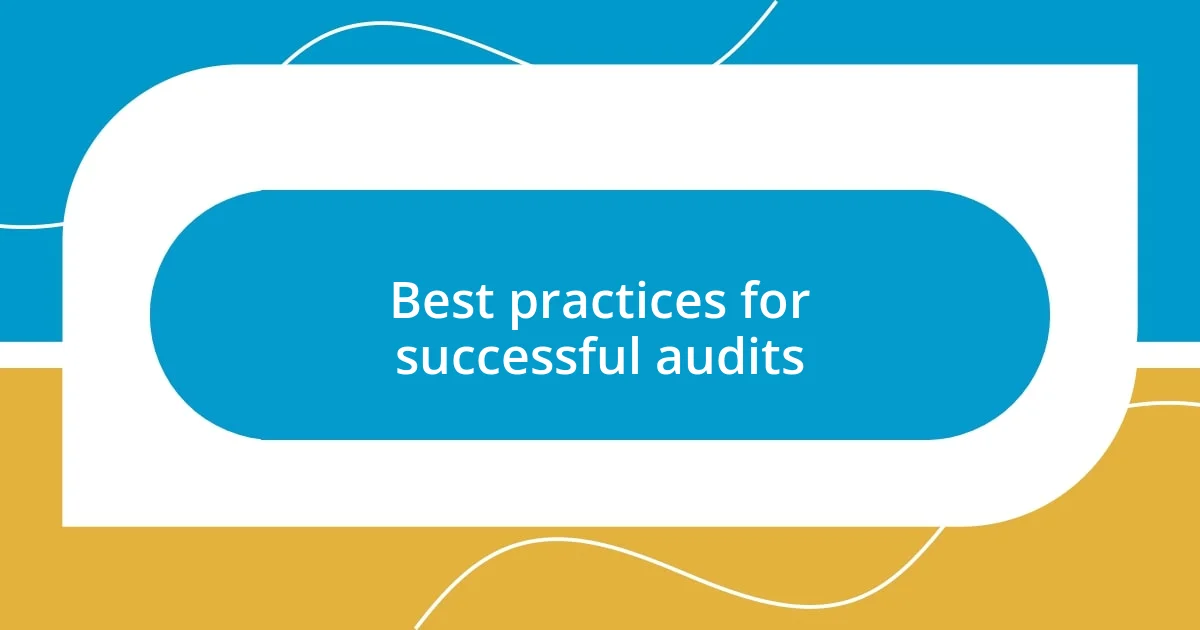
Best practices for successful audits
One of the best practices I found crucial during data protection audits is thorough preparation. I still remember my team gathering in a room, armed with checklists and policies, days before the scheduled audit. This proactive step made all the difference. Have you ever felt the relief that comes when you’re truly ready? It empowered us to clarify any ambiguities and feel confident in our responses.
Another key takeaway was involving all team members in the process. I often recall a moment when our marketing team discovered how their data practices impacted customer privacy. We arranged workshops where representatives from each department could share insights and challenges. It was enlightening to watch the realization dawn on them about their role in data protection. Isn’t it amazing how collective knowledge can strengthen an organization?
Lastly, I cannot stress the importance of documenting every step and decision. During our audits, I made it a point to keep meticulous records of our discussions and findings. This practice not only aided in compliance but also served as a roadmap for future audits. Reflecting on these documents later revealed patterns of improvement and areas needing more attention. Have you ever reviewed past notes and felt a sense of progression? It’s a powerful tool in establishing a culture of accountability and continuous learning.












